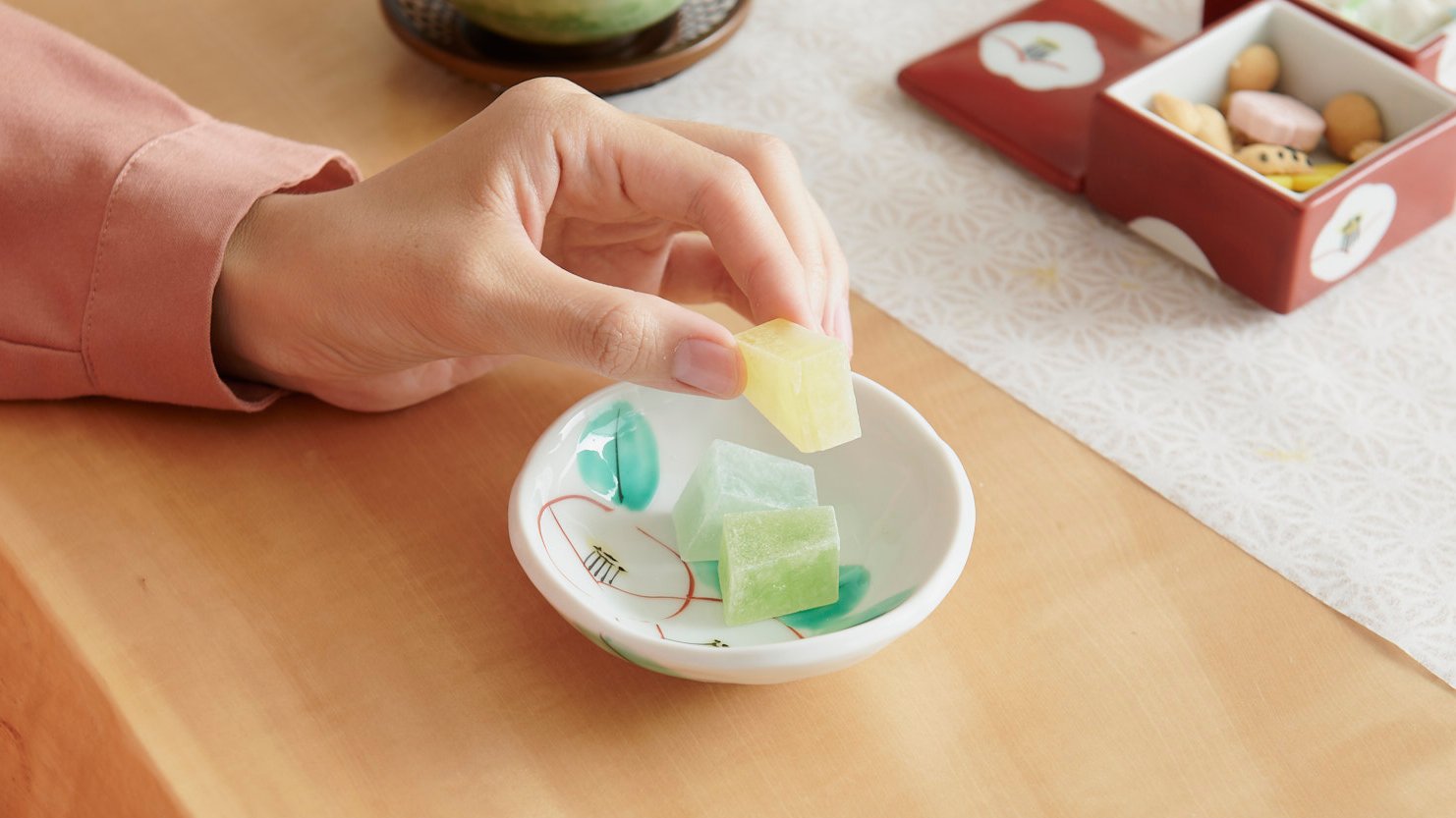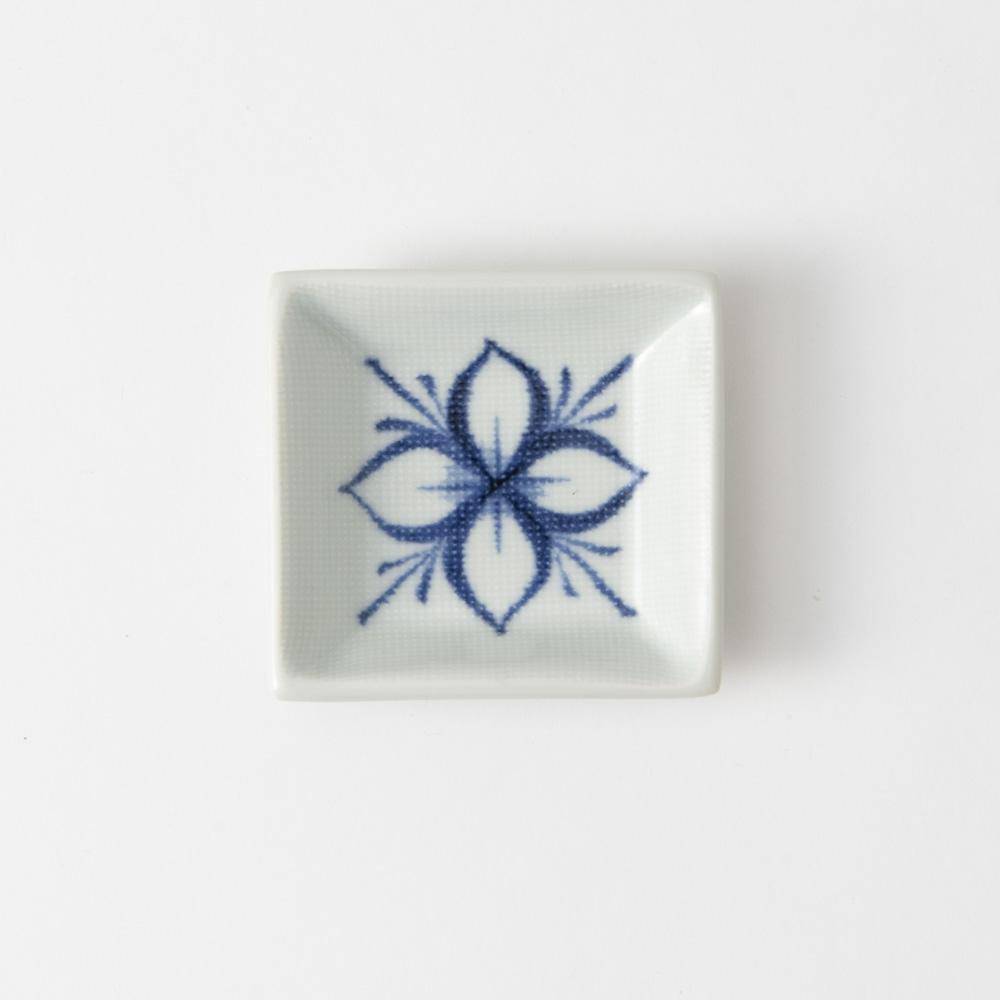
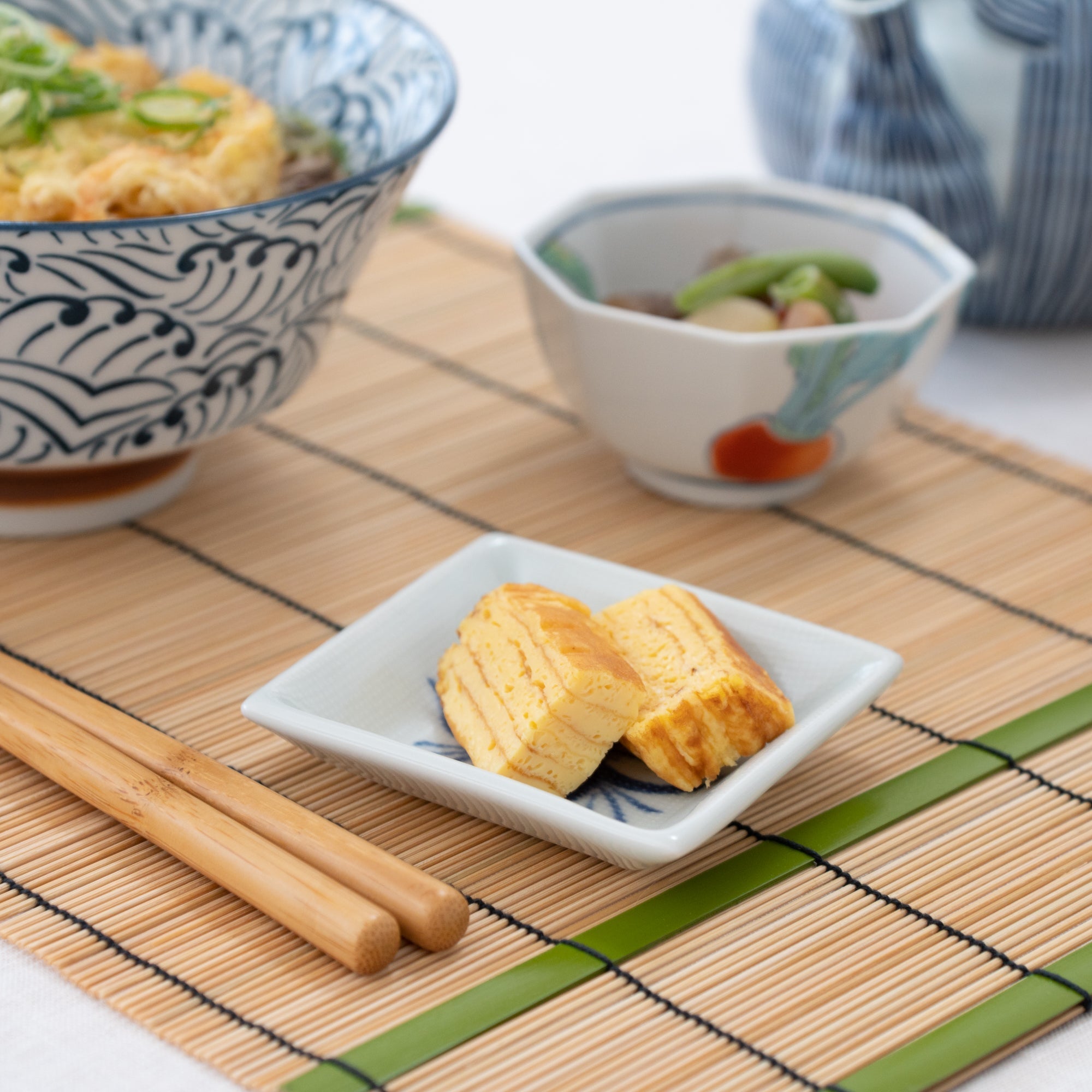
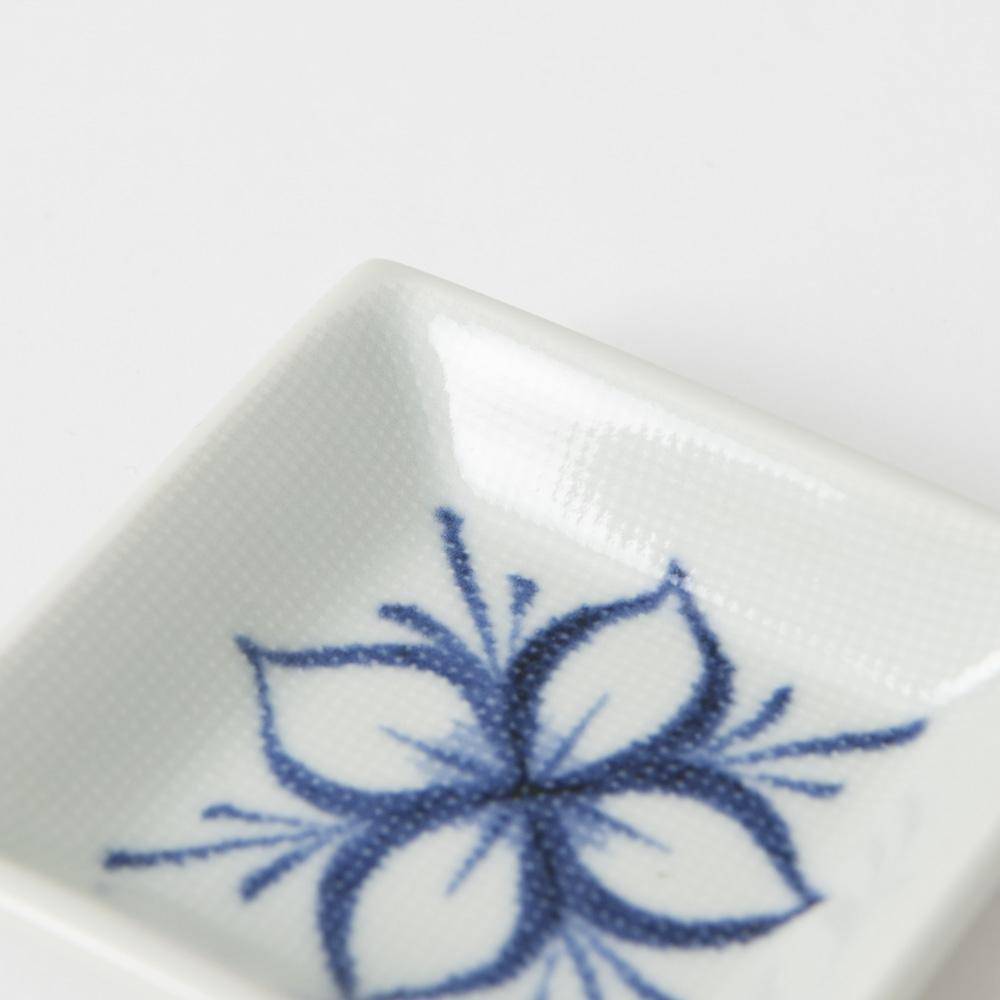
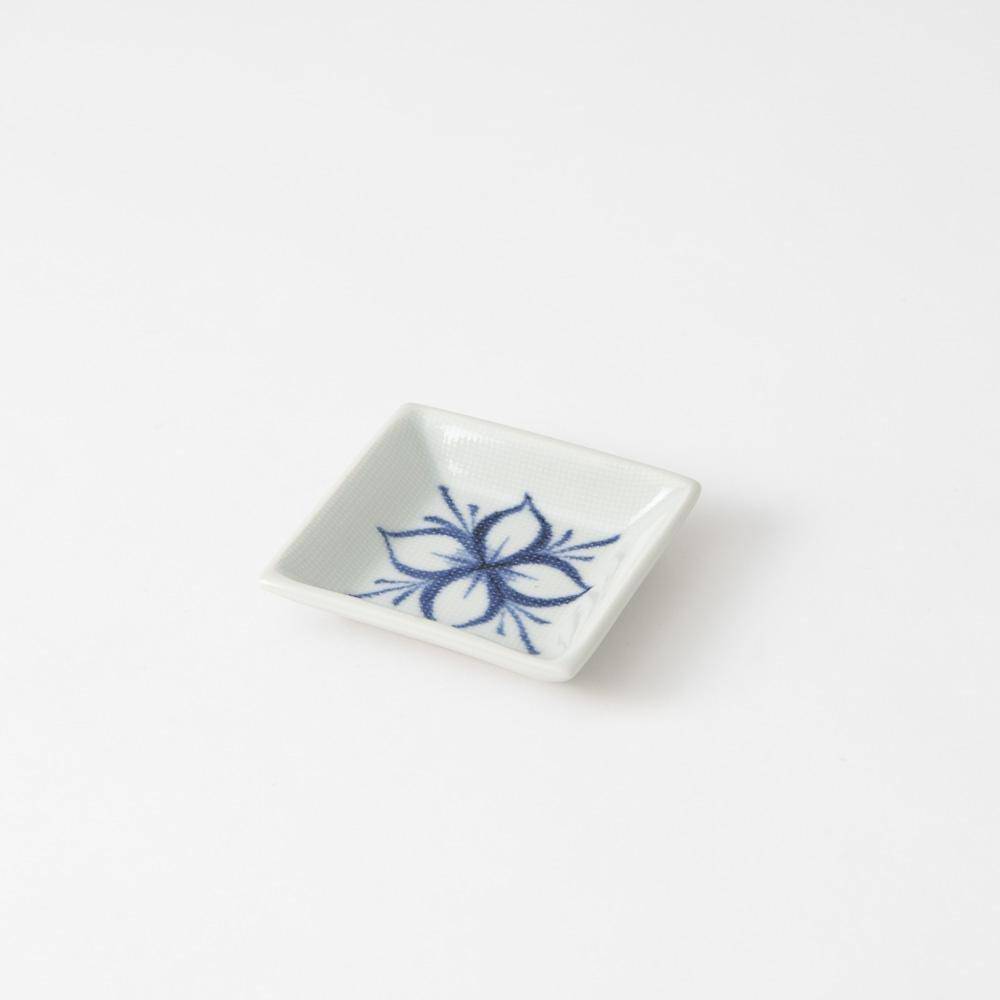
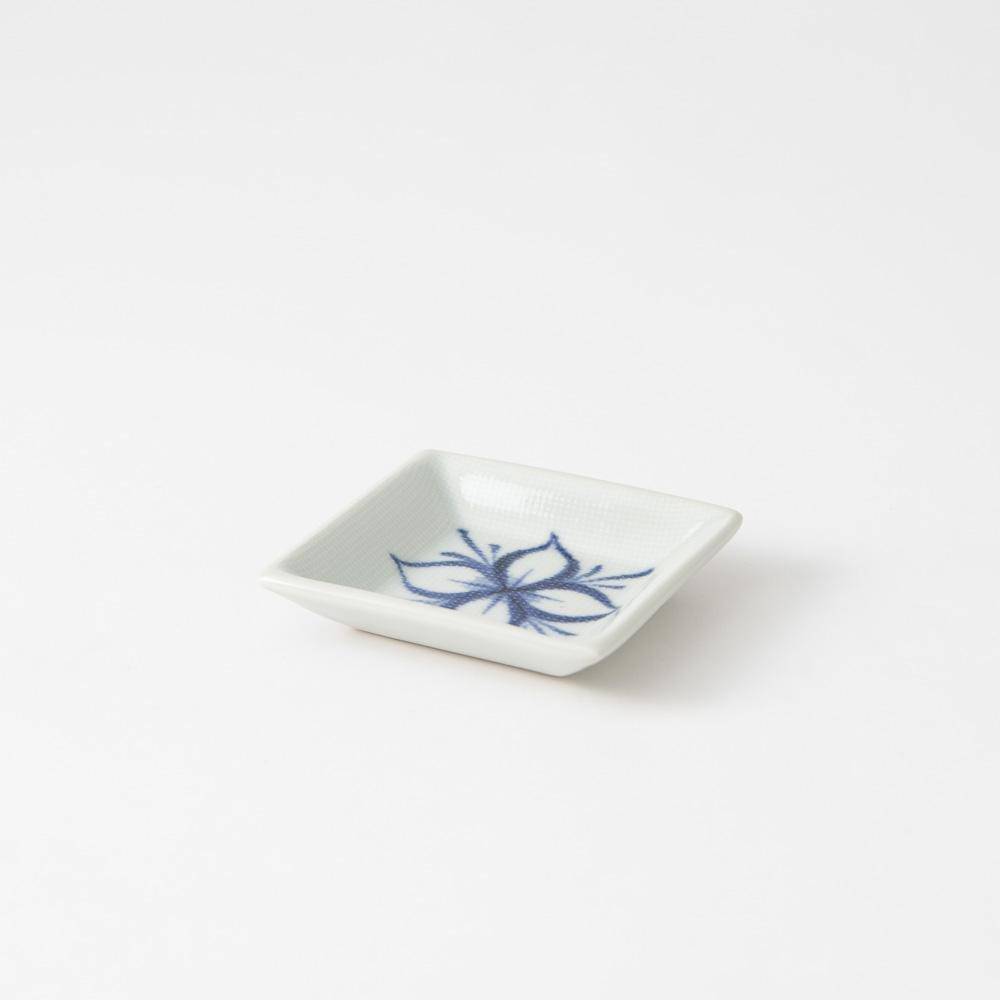
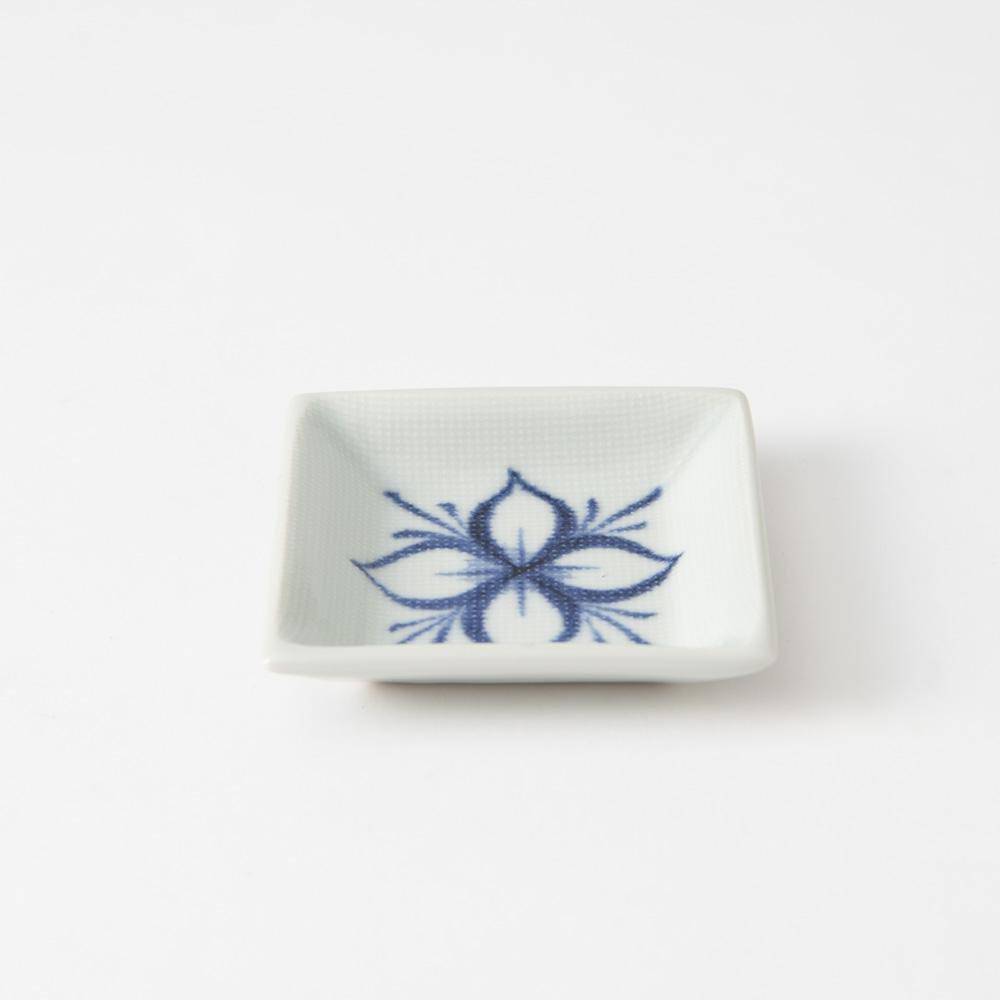
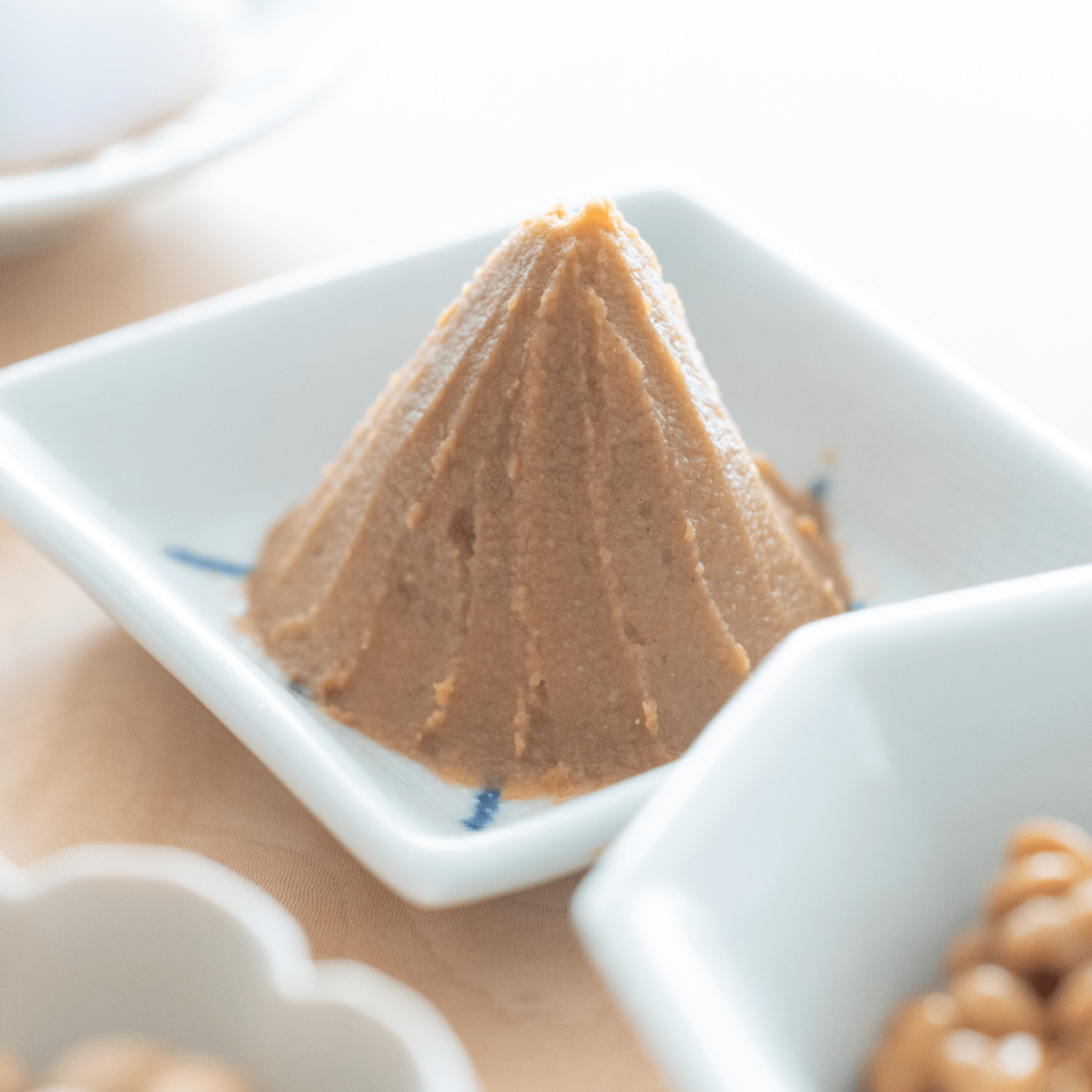
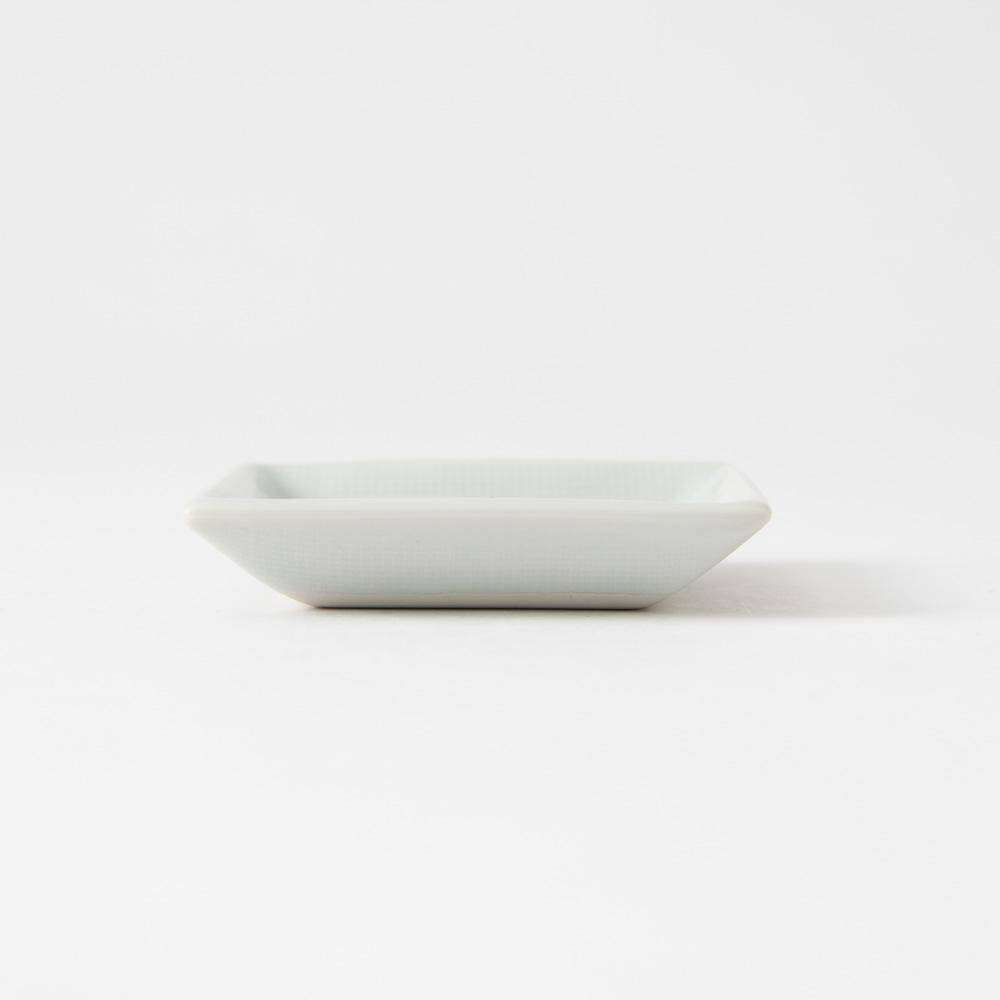
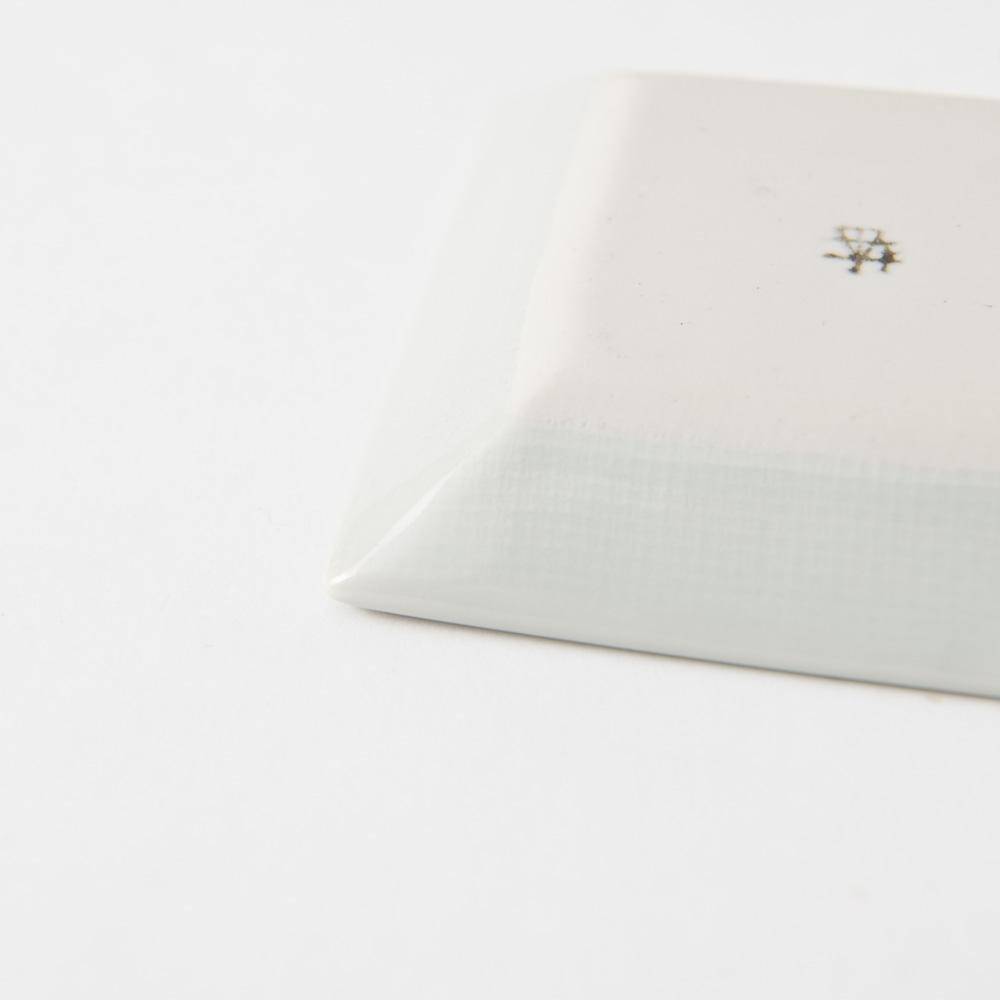
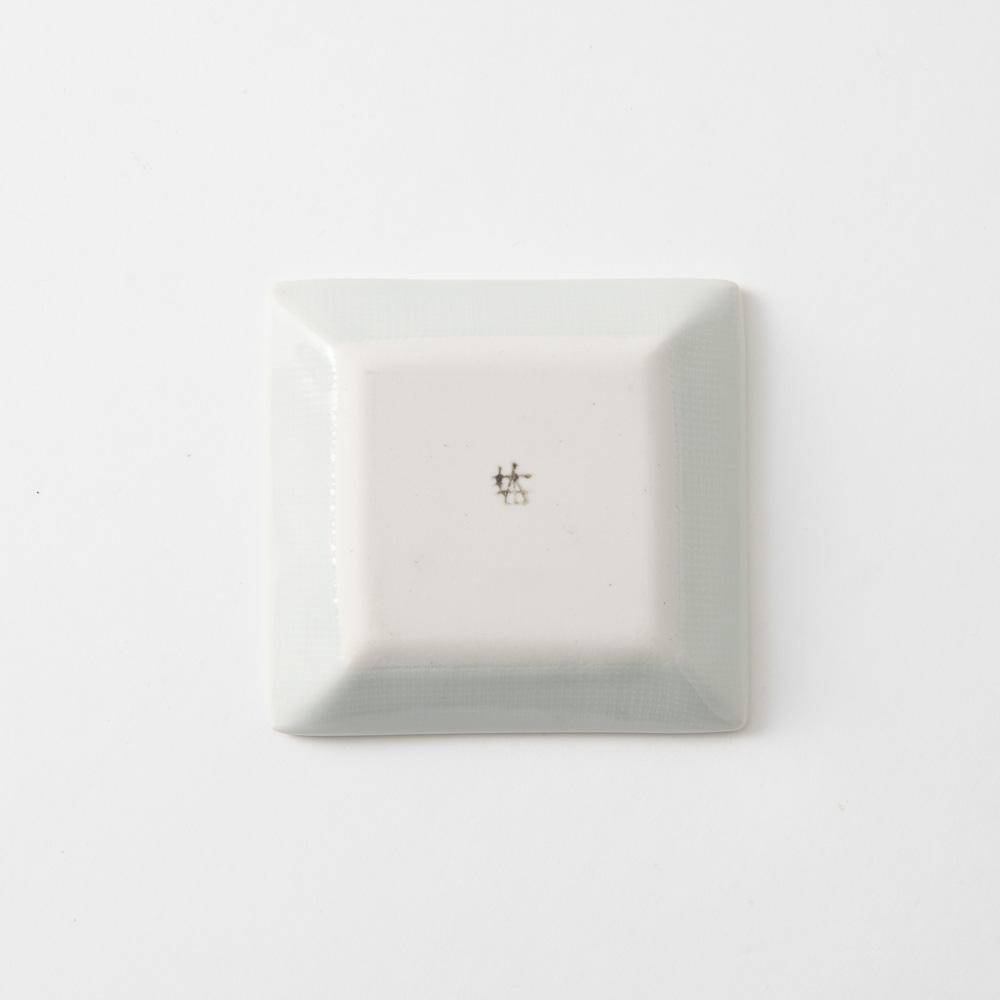
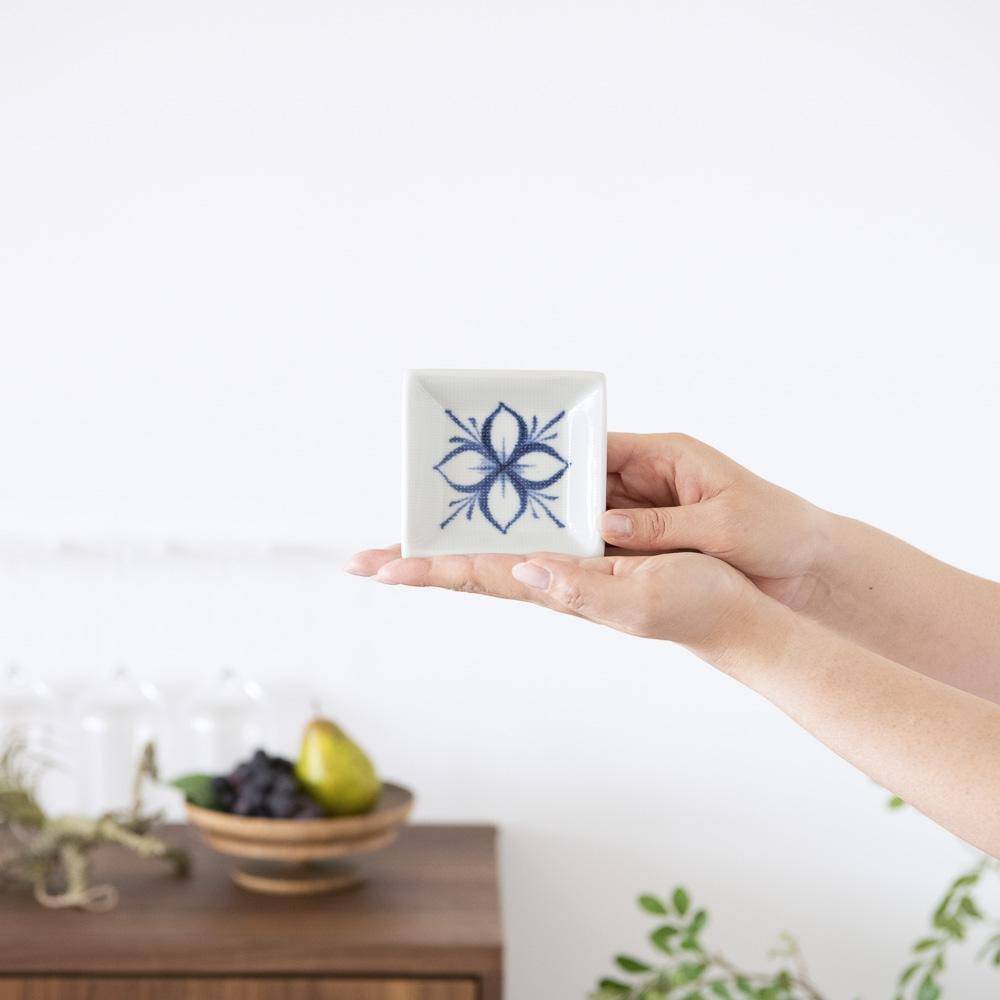
Four Leaf Square Sauce Plate
Estimated Shipping Widget will be displayed here!
This square blue and white sauce plate showcases a striking leaf motif in indigo, capturing the warmth of hand-painting through delicate, nature-inspired patterns. The textured surface, reminiscent of woven cloth, adds a tactile charm and uniqueness to the piece.
Highly versatile, it’s perfect for serving sauces, condiments, or small treats like nuts and candies. Its modern design also makes it ideal for home decor, offering a stylish way to organize small essentials.
DETAILS
| Quantity | 1 |
| Size | L 8.7 cm (3.4 in) x W 9 cm (3.5 in) x H 1.8 cm (0.7 in) |
| Material | Porcelain |
| Microwave | Yes |
| Dishwasher | Yes |
Maker / Brand
Baizan Kiln, the oldest existing kiln in Tobe City, Ehime Prefecture, Japan, is cherished for its creations featuring simple yet dynamic brushstrokes and a sturdy, robust form. Its warm white porcelain pieces are adorned with deep indigo and colorful patterns, and their thick, solid shapes evoke a sense of unpretentious, wholesome beauty. In 1976, Baizan Kiln was officially recognized as a traditional craft maker by the Ministry of Economy, Trade, and Industry.
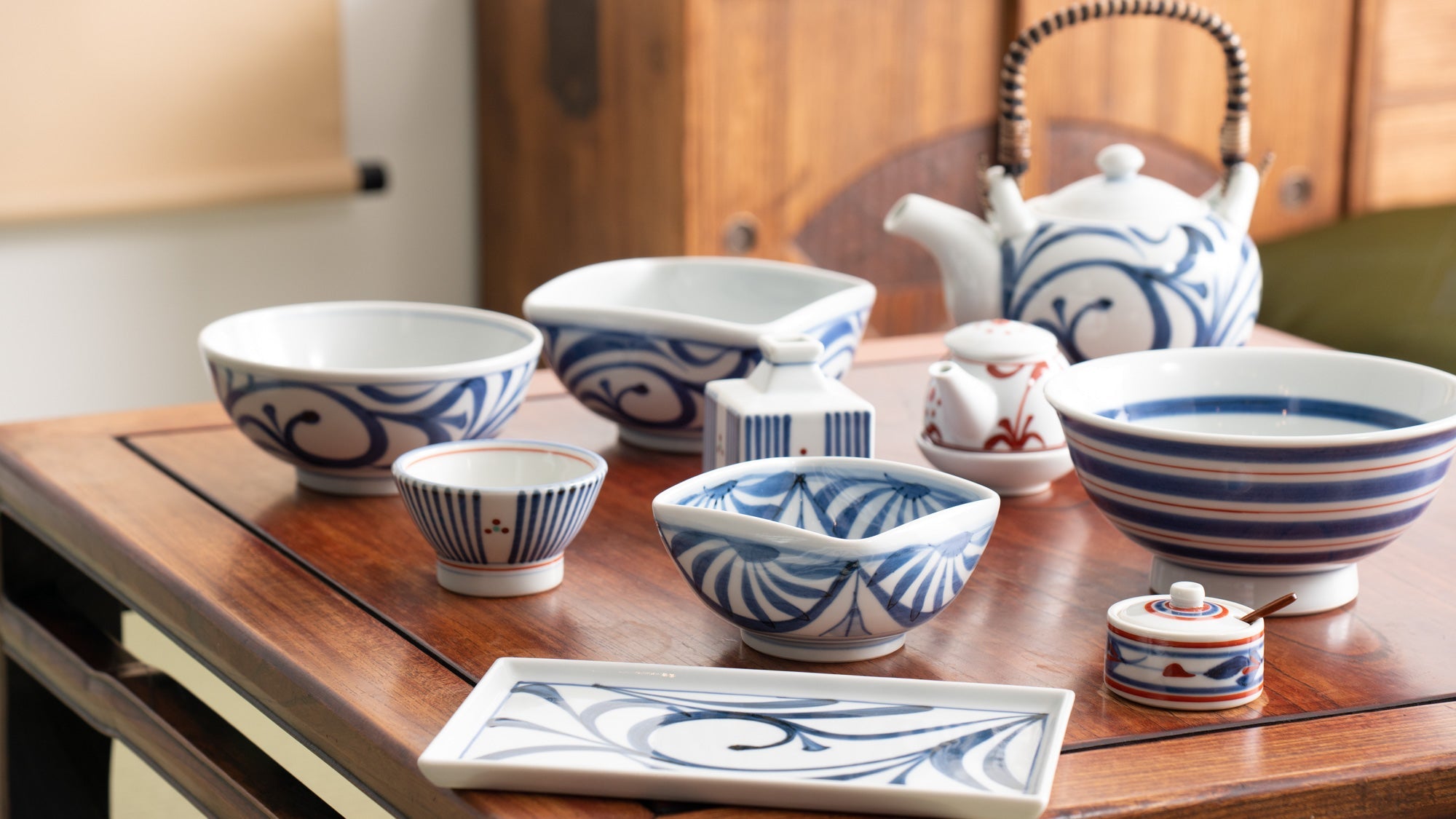
Crafts
Tobe ware is porcelain produced in the Tobe region of Ehime Prefecture, located in the northwest of Shikoku Island. The white porcelain, with its beautiful, slightly bluish hue from the iron content, continues to be highly valued and loved. Tobe ware maintains a strong respect for traditional handicraft techniques, even amidst modernization.
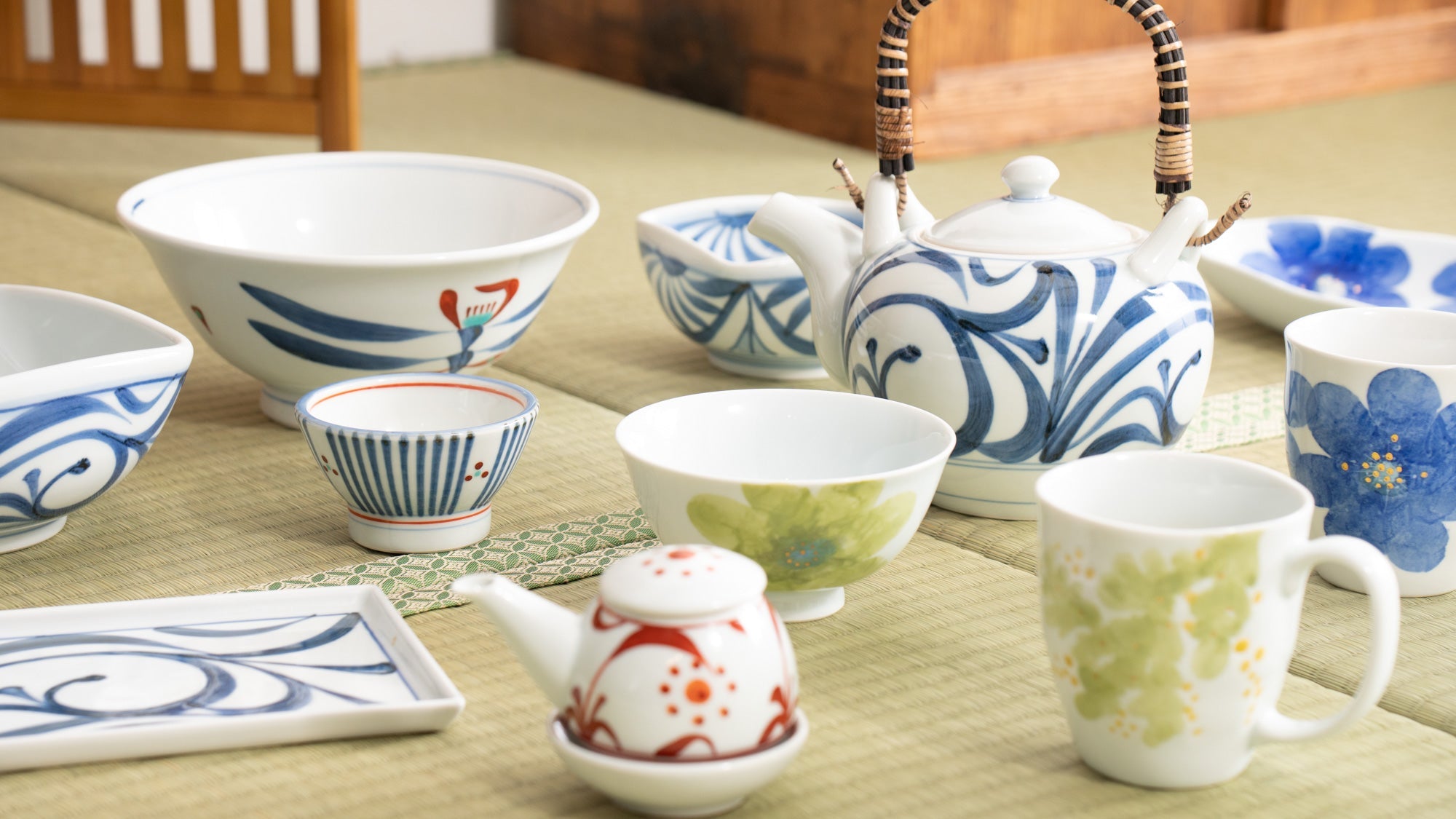
Choose options











Sauce Plates
Ranging in style from elegant to kawaii, our collection of Japanese sauce plates is perfect for when you need something small yet versatile for your dining table. Conveniently sized for soy sauce and other condiments accompanying sushi or noodles, these dishes are also just right for bite-sized cheese, nuts, and appetizers. A must-have for any meal.
This category includes plates with diameters under 12.9 cm (5.1 in).
